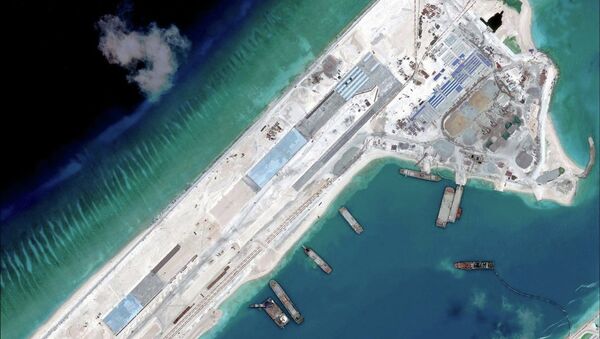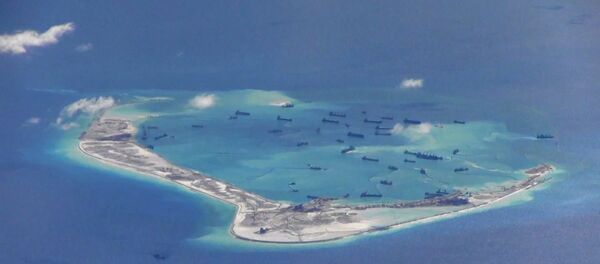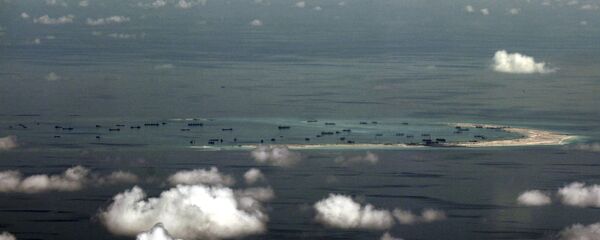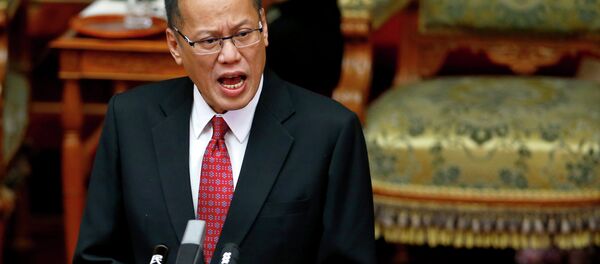"China will complete its reclamation project soon as part of its South China Sea construction in parts of the Nansha islands," Chinese foreign ministry spokesman Lu Kang said in a statement on Tuesday, using the Chinese name for the Spratly archipelago.
"It is fair, reasonable, lawful," the statement added. "It does not effect, and is not targeted against, any country, and will not affect countries’ freedom of navigation and overflight in the South China Sea. It is beyond reproach."
Not everyone feels that way. While the United States and its allies have repeatedly expressed objections to the land reclamation project, Japan stated a harsher rebuke on Wednesday.
"We hold serious and significant concerns about the unilateral actions aimed at changing the status quo, which are bound to increase tension," top spokesman for the Japanese government, Yoshihide Suga, told reporters.
He then went on to add that since the islands were built in disputed territory, they should not be automatically considered Beijing’s property.
"With the completion of the reclamation, we must not accept the land reclamation as a done deal," Suga added. "We demand [China] not take unilateral actions that bring irreversible and physical changes."
In response to Suga’s comments, the Chinese foreign ministry was quick to point out that the island construction occurred within Chinese territory.
"China has indisputable sovereignty over the Nansha Islands and we do not need to prove this by building facilities on the islands and reefs," Kang told reporters during a news briefing.
A hotly contested region through which nearly $4 trillion in global trade passes annually, most of the South China Sea is claimed by Beijing, though there are overlapping claims by Indonesia, the Philippines, Brunei, Malaysia, Taiwan, and Vietnam.
Despite the fact that neither Japan nor the United States have any territorial claims in the region, both nations have been pushing Pacific allies to step up pressure against Beijing for its land reclamation projects, which have established nearly 2,000 acres by dumping dredged sand onto partially submerged reefs.
In response to the project, the Pentagon has begun conducting military patrols of the region, a move seen by the Chinese government as a provocation.
Earlier this month, Philippine President Benigno Aquino also conducted a four-day tour of Japan, and during his visit gave a speech in which he compared China’s actions to those of Nazi Germany prior to World War II.
"If somebody said stop to Hitler at that point in time, or to Germany at that time, would we have avoided World War II?" Aquino asked.
The comments were heavily criticized by the Chinese government, which pointed out that the controversial statement was part of the Philippines latest efforts to "stir up trouble and sling mud at China."





